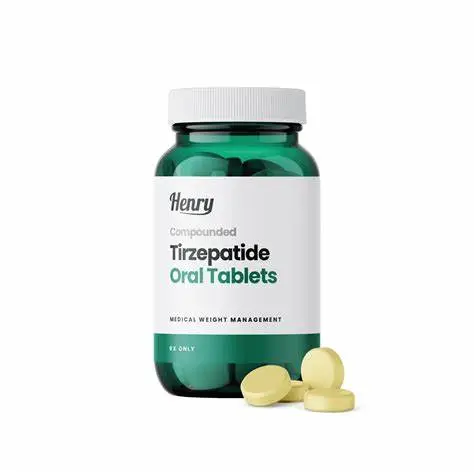weight loss
Does Oral Tirzepatide Work as Well as Injections? Here’s What Science Says
Does Oral Tirzepatide Work as Well as Injections? Here’s What Science Says
Does Oral Tirzepatide Work as Well as Injections?
With the rising popularity of GLP-1 receptor agonists like tirzepatide, many patients and providers are now asking:
“Does oral tirzepatide work as well as injections?”
Tirzepatide, best known under the brand name Mounjaro, has shown remarkable results in managing type 2 diabetes and promoting weight loss. But until recently, it has only been available as a once-weekly injection. As oral versions of GLP-1-based drugs enter the market, researchers are investigating if oral tirzepatide can match the efficacy and safety of its injectable form.
Let’s break down the science, potential benefits, and what the future might hold.
What Is Tirzepatide?
Tirzepatide is a dual GIP and GLP-1 receptor agonist, meaning it mimics two hormones that regulate:
-
Blood sugar levels
-
Insulin secretion
-
Appetite and satiety
Originally developed for type 2 diabetes, tirzepatide also promotes significant weight loss, making it a promising option for those with obesity or metabolic syndrome.
Is Oral Tirzepatide Available?
As of now, oral tirzepatide is not commercially available, but clinical trials are underway. According to recent updates from Eli Lilly, the manufacturer of Mounjaro, oral formulations of tirzepatide are being tested for:
-
Bioavailability (how well the drug is absorbed)
-
Efficacy in controlling blood glucose and aiding weight loss
-
Tolerability and safety over time
Injections vs. Oral Tirzepatide: What We Know So Far
Here’s a comparison of injectable vs. oral tirzepatide based on current knowledge and early clinical trials:
| Feature | Injectable Tirzepatide | Oral Tirzepatide (in trials) |
|---|---|---|
| Dosage | Once-weekly injection | Likely daily or every other day |
| Efficacy | Proven to lower A1C & weight | Early results show promising, but slightly lower efficacy |
| Absorption | 100% bioavailability via injection | Absorption varies; oral delivery needs enhancement |
| Convenience | One dose per week | Easier for needle-averse patients |
| Side Effects | Nausea, vomiting, constipation | Similar side effects expected |
What Do Studies Say About Oral Tirzepatide?
Early-phase studies suggest that oral tirzepatide is effective, but it may require higher doses or enhanced delivery methods to achieve the same impact as injectable forms.
Researchers are exploring oral delivery technologies, such as:
-
Permeation enhancers to improve gut absorption
-
Enteric coatings to protect the drug in the stomach
-
Mucoadhesive capsules for slow and steady release
While oral tirzepatide shows real potential, more large-scale clinical trials are needed to confirm long-term efficacy and safety.
Pros and Cons of Oral Tirzepatide
Pros:
-
No needles
-
Easier adherence for some patients
-
Potential for broader access
Cons:
-
May require more frequent dosing
-
Absorption challenges may reduce effectiveness
-
Still in development (not yet FDA-approved)
Will Oral Tirzepatide Be as Effective?
Based on the current data, oral tirzepatide may work well, but likely not as powerfully as the injection—at least not without some modifications.
Injectable tirzepatide delivers consistent and complete absorption, making it more reliable in terms of therapeutic outcomes. However, the convenience of an oral option could outweigh the slightly reduced potency for some patients.
Does oral tirzepatide work as well as injections
Final Thoughts: Is Oral Tirzepatide the Future?
Tirzepatide has already revolutionized diabetes and weight loss treatment through its injection form. With oral tirzepatide in development, the future looks even more accessible for those who prefer pill-based medications.
However, until more research is complete and FDA approval is granted, injectable tirzepatide remains the gold standard for now.

